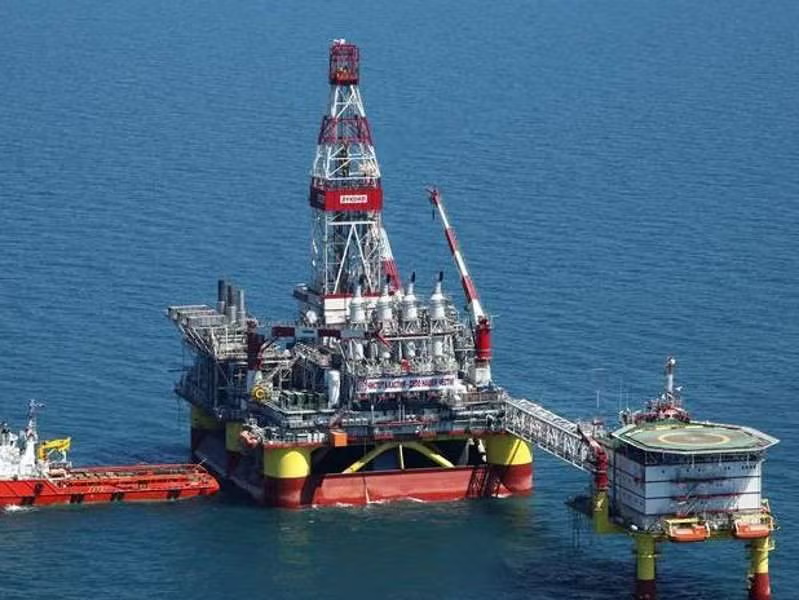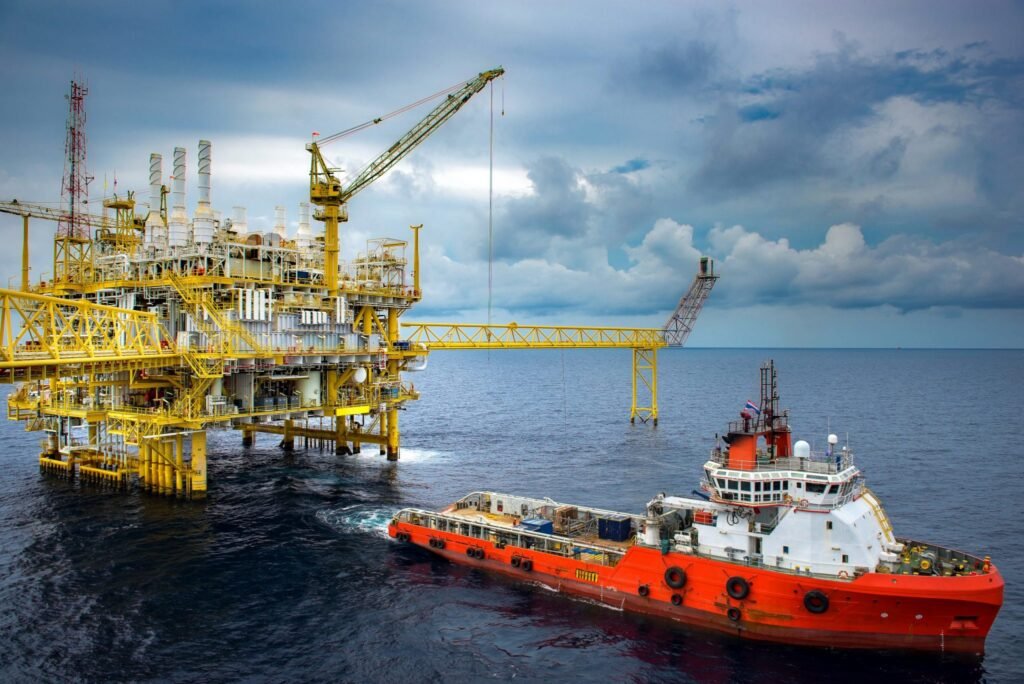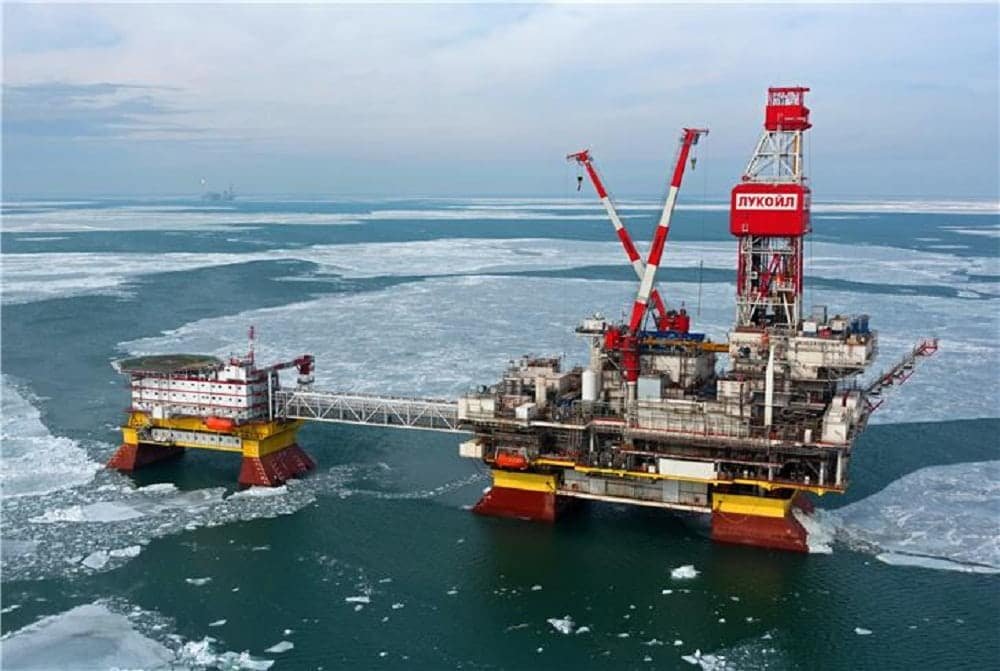Physical Address
304 North Cardinal St.
Dorchester Center, MA 02124

The Caspian Sea region has long been a focal point of energy geopolitics. Rich in hydrocarbons and strategically positioned between Europe and Asia, the basin is home to some of the world’s largest untapped oil and natural gas reserves. At the heart of this story lies Kazakhstan, a country that has rapidly transformed from a Soviet republic into a critical player in global energy supply.
As energy markets face uncertainty from geopolitical tensions to the energy transition Kazakhstan’s role as a reliable oil producer in the Caspian basin is becoming increasingly important.
The Caspian Sea is the world’s largest inland body of water, bordered by Russia, Iran, Azerbaijan, Turkmenistan, and Kazakhstan. With proven oil reserves exceeding 30 billion barrels (U.S. EIA), Kazakhstan holds some of the largest deposits in the region.
The country’s location gives it a unique advantage:
Proximity to Europe, a major energy consumer seeking diversification away from Russian oil.
Accessibility to China and Asia, where demand growth remains strong.
Established export infrastructure like the Caspian Pipeline Consortium (CPC), linking Kazakhstan’s Tengiz field to the Russian Black Sea port of Novorossiysk.
This strategic geography makes Kazakhstan a natural bridge between East and West in global energy flows.

As global oil markets adapt to new realities from sanctions on Russia to OPEC+ production decisions. Kazakhstan’s output has gained importance. In 2022–2023, as Europe sought alternatives to Russian crude, Kazakhstan increased exports through the “KEBCO” (Kazakh Export Blend Crude Oil) label to distinguish its oil from Russian-origin barrels (Reuters ). Kazakhstan is also diversifying export routes to avoid overdependence on Russian infrastructure, including plans for pipelines through the Caspian to Azerbaijan and onward to Turkey. By expanding output and diversifying routes, Kazakhstan is strengthening its position as a stable and reliable supplier in a volatile market.
Kazakhstan is a member of the OPEC+ coalition, aligning with production targets set alongside Saudi Arabia, Russia, and other key producers. While the country sometimes struggles with compliance due to technical challenges at its megaprojects, it remains committed to OPEC+ cooperation.
This participation enhances Kazakhstan’s role in shaping global oil balances, particularly in times of oversupply or crisis.
Kazakhstan’s oil industry cannot be viewed purely in economic terms, it is also deeply geopolitical.
Russia: Kazakhstan relies heavily on Russian transit pipelines, though it is actively diversifying.
China: A growing destination for Kazakh crude via cross-border pipelines.
Europe: Increasingly dependent on Kazakhstan as it reduces reliance on Russian oil.
Kazakhstan’s ability to balance relationships with these powers while maintaining export reliability makes it a geopolitical swing player in global energy.
Despite its strengths, Kazakhstan faces several obstacles:
Infrastructure Bottlenecks: Heavy reliance on the CPC pipeline leaves exports vulnerable to political disputes or technical shutdowns.
Environmental Concerns: Projects like Kashagan are located in ecologically sensitive areas, requiring careful management.
Energy Transition: As the world accelerates toward renewables, Kazakhstan must prepare for a less oil-dependent future.
Investment Climate: Maintaining investor confidence amid shifting regulations and local content requirements is a constant challenge.
Kazakhstan’s oil industry is anchored by several massive projects:
Tengiz Field: Operated by Chevron and partners, Tengiz is one of the world’s deepest and largest oil fields. Expansion projects aim to raise capacity to 1 million barrels per day.
Kashagan Field: Dubbed one of the most challenging engineering projects in oil history, Kashagan holds up to 13 billion barrels of recoverable reserves (IEA). After years of delays, production is ramping up steadily.
Karachaganak Field: A giant gas-condensate field that contributes significantly to Kazakhstan’s oil and gas balance.
These megaprojects put Kazakhstan firmly on the map as a top 15 oil producer worldwide.

In addition to state-owned KazMunayGas and major international oil companies like Chevron, ExxonMobil, and Shell, independent firms are increasingly shaping Kazakhstan’s oil sector.
One such example is Celevasans International Petroleum, a Texas-registered company operating in Kazakhstan. By investing in upstream exploration and midstream logistics, Celevasans is part of a new wave of international players contributing to the region’s output growth.
Smaller, agile companies like Celevasans complement the large-scale megaprojects by focusing on efficient operations, local partnerships, and flexible trading strategies. Their presence highlights how Kazakhstan’s oil sector is opening to a broader mix of global energy firms.
Looking ahead, Kazakhstan is expected to remain a top-tier oil supplier for decades. According to the IEA World Energy Outlook, global oil demand will continue in key sectors like aviation, petrochemicals, and shipping areas where Kazakhstan is well-positioned to contribute.
By:
Expanding output at Tengiz and Kashagan,
Diversifying export routes beyond Russia, and
Encouraging investment from both majors and independents like Celevasans International,
Kazakhstan is building a resilient energy sector capable of weathering global volatility.
The Caspian Sea has always been a prize for empires and energy companies alike. Today, Kazakhstan stands at the center of that story, emerging as a vital supplier in global oil markets. With its rich reserves, strategic geography, and growing international partnerships, the country is not just a regional player but a global one.
As new companies like Celevasans International Petroleum deepen their involvement, Kazakhstan’s role in global supply chains will only strengthen. In an era defined by shifting alliances, energy security, and the push for transition, the Caspian giant is set to remain indispensable.





